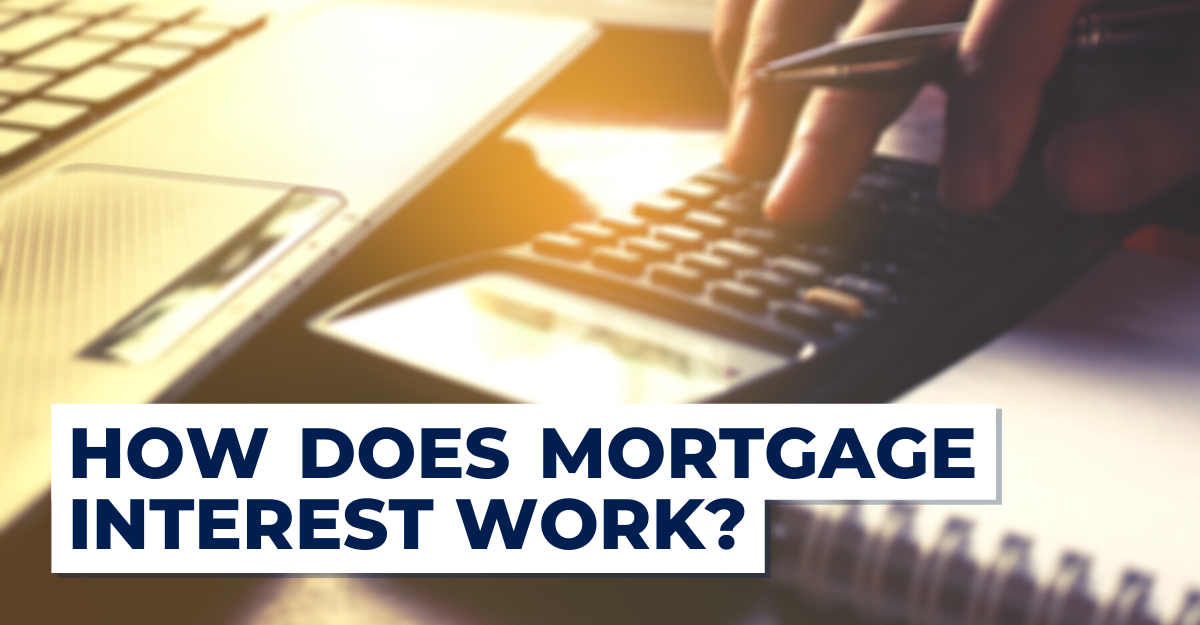Purchasing a home is typically the single largest financial transaction a person will make in their lifetime. However, the majority of people that take out a mortgage don’t fully understand how mortgage interest actually works.
Mortgage Payment Calculation
 Your monthly mortgage payment is split into both principal(the amount you’ve borrowed) and the interest accrued for the month.
Your monthly mortgage payment is split into both principal(the amount you’ve borrowed) and the interest accrued for the month.
Your interest rate is quoted on an annual basis, but on most mortgages the interest payment is calculated monthly.
So consider you have a 3% interest rate on a $250,000 loan. When you divide 0.03(3%) by 12 you get 0.0025. Multiple 0.0025 times $250,000 and you will get a monthly interest payment of $625.
Remember, you only pay interest on the amount you owe on your loan. So your monthly interest payment decreases slightly each month as your principal balance goes down. This is why making extra principal only payments is so impactful in decreasing your loan term.
What About APR?
A mortgage interest rate is always accompanied with an APR. The APR is always slightly higher than the interest rate, which confuses a lot of borrowers.
The APR is the mortgage interest rate adjusted to include all other loan charges such as title insurance, points, mortgage insurance(if applicable), etc. This calculation assumes that these charges are spread evenly over the lifespan of the mortgage.
Does Mortgage Interest Accrue Monthly or Daily?
In the United States, the standard mortgage interest accrues monthly, meaning that the interest amount due to the lender is due monthly.
There are some niche loan programs where interest does accrue daily, these are called “simple interest mortgages”. Just like the formula we went over early, this annual rate would be calculated by 365 rather than 12.
Why Are Rates Different For Different Borrowers?
For illustration purposes, let’s say John and Paul apply for a mortgage on the same day. Both are using the same loan program for the same loan amount, but John has a higher rate than Paul, why is that?
- John has a significantly lower credit score.
- John is borrowing on an investment property, Paul is buying a primary residence.
- John is buying a 4-unit property, Paul is buying a single family home.
- John is taking a cash out refinance, Paul is not.
- John needs a 60-day lock, Paul only needs 30-days.
- John is working with a bank, Paul is working with a Mortgage Broker.
Fixed vs Adjustable Mortgage Interest Rates
The majority of mortgages are fixed rate mortgages, meaning that your rate will never change during the lifespan of your loan. You can also get a mortgage where the rate fluctuates over time, this is called an ARM(adjustable rate mortgage).
ARMs always have a fixed rate period at the beginning of the loan, which can be anywhere from 6 months to 10 years. The rate adjustment feature of an ARM makes the whole loan a lot more complicated, and doesn’t make sense for most borrowers.
How Do I Get The Best Rate?
Now that you understand how interest rates work, you’re probably wondering how you can get the best available rate, right?
It’s typically best to avoid large retail banks and mortgage bankers as they charge unnecessary lender fees and have inflated rates. A general rule of thumb while shopping for a mortgage is: if your lender has a Super Bowl Commercial, you’re probably going to get overcharged!
Using a local Mortgage Broker like us that doesn’t charge a lender fee and has access to 30+ wholesale lenders will ensure you get the best possible rate at the best possible cost.
Not Sure Where To Start?
That's okay. Let us build a custom loan program around your needs and budget.
Contact Us